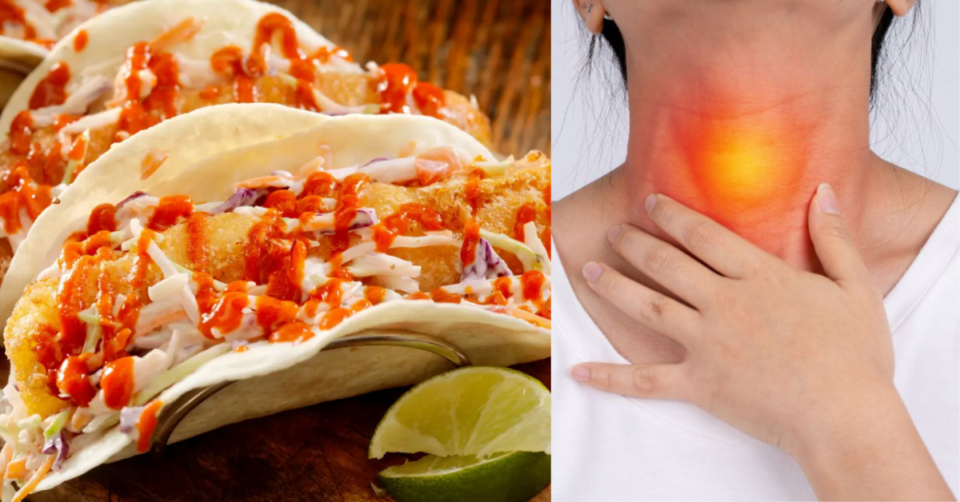Introduction
Eosinophilic esophagitis (EoE) is a chronic inflammatory condition of the esophagus characterized by an abnormal accumulation of eosinophils, a type of white blood cell, in the lining of the esophagus. People living with EoE often experience symptoms such as difficulty swallowing, chest pain, food impaction, and heartburn. While the exact cause of EoE is not fully understood, dietary triggers are believed to play a significant role in exacerbating symptoms. This article aims to highlight 10 foods to avoid for individuals with EoE and provide an overview of pharmaceutical drugs used in the treatment of this condition.
Foods to Avoid for Eosinophilic Esophagitis (EoE):
1. Dairy Products: Dairy products such as milk, cheese, and yogurt can exacerbate symptoms of EoE in some individuals. Lactose intolerance or a cow’s milk protein allergy may contribute to inflammation and discomfort in the esophagus.
2. Wheat and Gluten: Wheat-containing products like bread, pasta, and cereals, as well as gluten-containing grains such as barley and rye, are common triggers for EoE. Some individuals with EoE may benefit from a gluten-free diet to alleviate symptoms.
3. Eggs: Eggs are a common allergen and may trigger allergic reactions in individuals with EoE. Avoiding eggs and foods containing eggs, such as baked goods and processed foods, may help reduce inflammation in the esophagus.
4. Soy Products: Soybeans and soy-based products, including tofu, soy milk, and soy sauce, contain proteins that can exacerbate EoE symptoms in susceptible individuals. Eliminating soy from the diet may be beneficial for some people with EoE.
5. Peanuts and Tree Nuts: Peanuts and tree nuts are potent allergens and can trigger allergic responses in individuals with EoE. Avoiding nuts and foods containing nuts is recommended to minimize inflammation and discomfort in the esophagus.
6. Shellfish: Shellfish, including shrimp, crab, lobster, and mollusks, can cause allergic reactions and exacerbate symptoms of EoE. People with EoE should avoid consuming shellfish to prevent inflammation and discomfort in the esophagus.
7. Citrus Fruits: Citrus fruits like oranges, lemons, grapefruits, and tomatoes are acidic and may irritate the lining of the esophagus in individuals with EoE. Limiting or avoiding citrus fruits and acidic foods can help alleviate symptoms of EoE.
8. Spicy Foods: Spicy foods, such as chili peppers, hot sauces, and spicy seasonings, can irritate the esophagus and worsen symptoms of EoE. People with EoE may find relief by avoiding spicy foods and opting for milder alternatives.
9. Chocolate: Chocolate contains compounds that can relax the lower esophageal sphincter and promote reflux, leading to worsening symptoms of EoE. Avoiding chocolate and cocoa-containing products may help manage symptoms in individuals with EoE.
10. Processed Foods and Food Additives: Processed foods, artificial additives, preservatives, and food colorings may contain ingredients that trigger allergic reactions or exacerbate inflammation in the esophagus. Opt for whole, unprocessed foods and read labels carefully to avoid potential triggers.
Pharmaceutical Drugs for Eosinophilic Esophagitis (EoE) Treatment:
1. Proton Pump Inhibitors (PPIs): PPIs such as omeprazole, lansoprazole, and esomeprazole are commonly prescribed to reduce stomach acid production and alleviate symptoms of acid reflux, which can contribute to EoE symptoms.
2. Topical Corticosteroids: Swallowed corticosteroids, such as fluticasone and budesonide, are often used as first-line therapy to reduce inflammation in the esophagus and improve symptoms of EoE. These medications are typically administered via a metered-dose inhaler or swallowed directly.
3. Systemic Corticosteroids: In cases of severe or refractory EoE, systemic corticosteroids like prednisone may be prescribed to suppress inflammation and alleviate symptoms. However, long-term use of systemic corticosteroids is generally avoided due to the risk of significant side effects.
4. Immunomodulators: Immunomodulatory medications, such as azathioprine and 6-mercaptopurine, may be used in conjunction with corticosteroids to manage EoE symptoms and reduce the need for long-term steroid therapy.
5. Biologic Therapies: Biologic agents, such as monoclonal antibodies targeting specific immune pathways, are emerging as potential treatment options for EoE. Drugs like dupilumab, which inhibits interleukin-4 and interleukin-13 signaling, have shown promise in clinical trials for reducing eosinophilic inflammation and improving symptoms in patients with EoE.
Conclusion
Managing Eosinophilic Esophagitis (EoE) requires a comprehensive approach that includes both dietary modifications and medical therapy. Avoiding trigger foods such as dairy, wheat, eggs, nuts, and citrus fruits can help reduce inflammation and alleviate symptoms in individuals with EoE. Additionally, pharmaceutical drugs such as proton pump inhibitors, topical corticosteroids, immunomodulators, and biologic therapies play a crucial role in controlling eosinophilic inflammation and improving esophageal function. It’s essential for individuals with EoE to work closely with healthcare providers to develop a personalized treatment plan tailored to their specific needs and symptoms.

